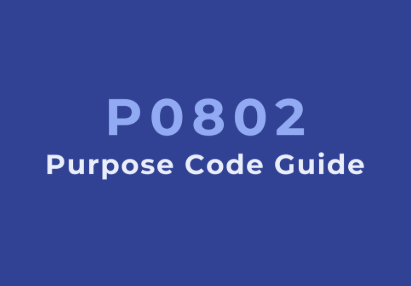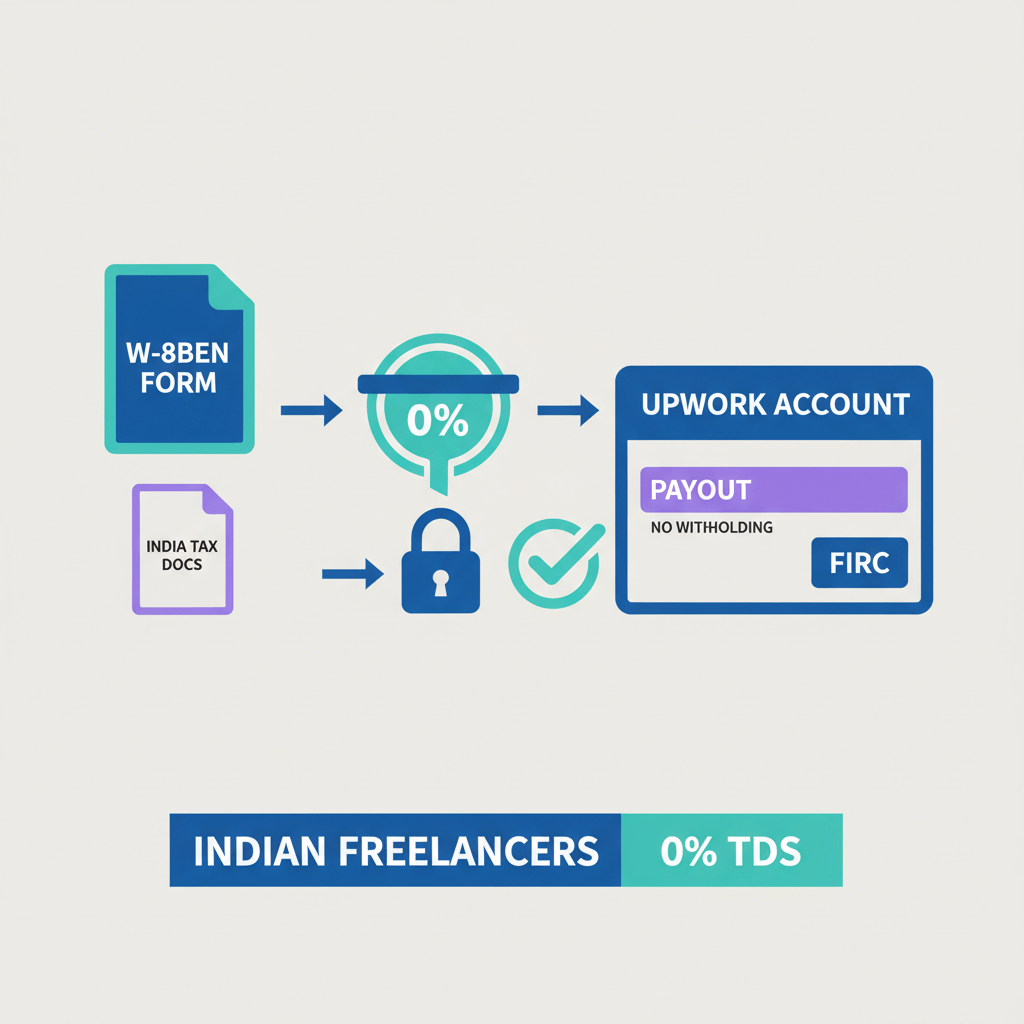Quote: Impact of Indian software industry
India has gained reputation as the software development centre of the world, much like China’s reputation as the factory of the world.

When someone transfers money abroad, they must tell their bank the reason for the transfer. That “why” is captured through a purpose code, which ensures the transaction is reported correctly by both the sender’s and receiver’s bank.
The Reserve Bank of India (RBI) has specified a comprehensive list of purpose codes to cover every possible reason for receiving money from abroad.
However, it is the receiver’s responsibility to identify the correct purpose code and share it with the sender. Without this, the payment can face unnecessary delays or even get rejected.
For Indian IT companies, consultants, and freelancers, one of the most commonly used codes is P0802. P0802 is the RBI purpose code to receive payments for software services, including IT development, SaaS products, cloud solutions, and IT consulting provided to overseas companies—other than those covered under the SOFTEX form.
Since the early 2000s, India’s IT industry has been at the centre of global digital transformation. Giants like Infosys, TCS, and Wipro built their reputation not just by coding software from scratch but by helping overseas companies implement, maintain, and optimize it.
According to NASSCOM, India’s tech sector exports are projected to hit USD 224.4 billion in FY25, driven not just by custom software but also by IT consulting, SaaS solutions, and cloud services. In fact, IT services still account for nearly 52% of overall exports, showing how crucial implementation and support work is in India’s global story.
But here’s the catch: getting paid for these services requires more than just sending an invoice. International Banks and regulators want the right paperwork—especially the correct purpose code. Miss it, and your payment can get delayed or even stuck.
That’s why P0802 matters. It tells your bank and the RBI, “this payment is for software consultancy or IT services,” so your money clears without unnecessary friction.
P0802 is the RBI purpose code for “Software consultancy/implementation (other than those covered in SOFTEX form).”
In simple terms, you use P0802 when you’re receiving payments from overseas clients for software-related services like consultancy, configuration, integration, customization, or IT implementation work. These are services where you advise or implement solutions, rather than exporting actual software products.
Here’s where many exporters slip up: not every IT-related payment can go under P0802. The key difference is whether you are exporting actual software or just providing software-related services.
P0802 → Software services & consultancy
P0807 → Software development & exports
There’s a thin line between these two, but it matters because banks and regulators tag these payments differently. Misclassifying can delay remittances or trigger compliance queries.
All of these fall squarely under “software consultancy/implementation” when they are outside SOFTEX’s scope.
Key takeaway: P0802 is for software consultancy/implementation work that isn’t SOFTEX-reportable. If SOFTEX applies, use the SOFTEX-mapped purpose code (commonly P0807).
Because the bank must report correctly to RBI, you can expect them asking for a few documents including:
1. At remittance setup (sender side):
Ask your client to include the purpose code “P0802” in the wire instructions. Many Indian banks explicitly request that Field 70/72 carry the purpose. Sharing the exact code upfront prevents delays or returns.
2. If your AD bank follows up (receiver side):
They might seek a short confirmation and the documents above to tag the inflow as P0802 for RBI reporting (or to re-tag it to a SOFTEX code if your service was misclassified).
For most Indian IT agencies and consultants, there's a lot of confusion in getting international payment on time, without losing money to hidden fees or confusing bank charges. That’s where Karbon comes in.
With Karbon Business, you can receive payments in 30+ currencies like USD, EUR, GBP, and AUD, directly into your virtual USD or multi-currency account. You always get the mid-market exchange rate.
Unlike banks that leave you chasing updates, Karbon gives you a dedicated account manager who ensures smooth, compliant transfers under P0802. So instead of worrying about forex spreads, SWIFT deductions, or SOFTEX confusion, you can focus on scaling your IT business globally.
Only if the work doesn’t need a SOFTEX declaration. If SOFTEX applies (most off-site code/ITeS exports), use the SOFTEX-mapped code such as P0807.
RBI’s purpose-code list (Annexure II) lists “P0802 – Software consultancy/implementation (other than those covered in SOFTEX form).”
If you’re exporting software/ITeS and must file SOFTEX with STPI/SEZ, you’re in SOFTEX territory—use the relevant SOFTEX code (e.g., P0807). Banks and DGFT mappings distinguish SOFTEX IT (P0807) from Non-SOFTEX IT (P0802).
Banks can re-classify, seek more documents, delay credit, or (in rare cases) return funds. Accurate purpose coding is part of RBI compliance.
When someone transfers money abroad, they must tell their bank the reason for the transfer. That “why” is captured through a purpose code, which ensures the transaction is reported correctly by both the sender’s and receiver’s bank.
The Reserve Bank of India (RBI) has specified a comprehensive list of purpose codes to cover every possible reason for receiving money from abroad.
However, it is the receiver’s responsibility to identify the correct purpose code and share it with the sender. Without this, the payment can face unnecessary delays or even get rejected.
For Indian IT companies, consultants, and freelancers, one of the most commonly used codes is P0802. P0802 is the RBI purpose code to receive payments for software services, including IT development, SaaS products, cloud solutions, and IT consulting provided to overseas companies—other than those covered under the SOFTEX form.
Since the early 2000s, India’s IT industry has been at the centre of global digital transformation. Giants like Infosys, TCS, and Wipro built their reputation not just by coding software from scratch but by helping overseas companies implement, maintain, and optimize it.
According to NASSCOM, India’s tech sector exports are projected to hit USD 224.4 billion in FY25, driven not just by custom software but also by IT consulting, SaaS solutions, and cloud services. In fact, IT services still account for nearly 52% of overall exports, showing how crucial implementation and support work is in India’s global story.
But here’s the catch: getting paid for these services requires more than just sending an invoice. International Banks and regulators want the right paperwork—especially the correct purpose code. Miss it, and your payment can get delayed or even stuck.
That’s why P0802 matters. It tells your bank and the RBI, “this payment is for software consultancy or IT services,” so your money clears without unnecessary friction.
P0802 is the RBI purpose code for “Software consultancy/implementation (other than those covered in SOFTEX form).”
In simple terms, you use P0802 when you’re receiving payments from overseas clients for software-related services like consultancy, configuration, integration, customization, or IT implementation work. These are services where you advise or implement solutions, rather than exporting actual software products.
Here’s where many exporters slip up: not every IT-related payment can go under P0802. The key difference is whether you are exporting actual software or just providing software-related services.
P0802 → Software services & consultancy
P0807 → Software development & exports
There’s a thin line between these two, but it matters because banks and regulators tag these payments differently. Misclassifying can delay remittances or trigger compliance queries.
All of these fall squarely under “software consultancy/implementation” when they are outside SOFTEX’s scope.
Key takeaway: P0802 is for software consultancy/implementation work that isn’t SOFTEX-reportable. If SOFTEX applies, use the SOFTEX-mapped purpose code (commonly P0807).
Because the bank must report correctly to RBI, you can expect them asking for a few documents including:
1. At remittance setup (sender side):
Ask your client to include the purpose code “P0802” in the wire instructions. Many Indian banks explicitly request that Field 70/72 carry the purpose. Sharing the exact code upfront prevents delays or returns.
2. If your AD bank follows up (receiver side):
They might seek a short confirmation and the documents above to tag the inflow as P0802 for RBI reporting (or to re-tag it to a SOFTEX code if your service was misclassified).
For most Indian IT agencies and consultants, there's a lot of confusion in getting international payment on time, without losing money to hidden fees or confusing bank charges. That’s where Karbon comes in.
With Karbon Business, you can receive payments in 30+ currencies like USD, EUR, GBP, and AUD, directly into your virtual USD or multi-currency account. You always get the mid-market exchange rate.
Unlike banks that leave you chasing updates, Karbon gives you a dedicated account manager who ensures smooth, compliant transfers under P0802. So instead of worrying about forex spreads, SWIFT deductions, or SOFTEX confusion, you can focus on scaling your IT business globally.
Only if the work doesn’t need a SOFTEX declaration. If SOFTEX applies (most off-site code/ITeS exports), use the SOFTEX-mapped code such as P0807.
RBI’s purpose-code list (Annexure II) lists “P0802 – Software consultancy/implementation (other than those covered in SOFTEX form).”
If you’re exporting software/ITeS and must file SOFTEX with STPI/SEZ, you’re in SOFTEX territory—use the relevant SOFTEX code (e.g., P0807). Banks and DGFT mappings distinguish SOFTEX IT (P0807) from Non-SOFTEX IT (P0802).
Banks can re-classify, seek more documents, delay credit, or (in rare cases) return funds. Accurate purpose coding is part of RBI compliance.

W-8BEN for Indian Freelancers: Upwork Guide to 0% Withholding

Swati Saraf
February 17, 2026

W-8BEN for Indian Freelancers: Upwork Guide to 0% Withholding

Swati Saraf
Join 2,000+ freelancers and SMEs already saving on international payments with Karbon.
Save 50% - Start Now